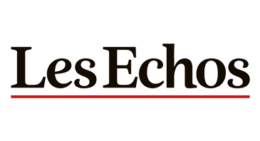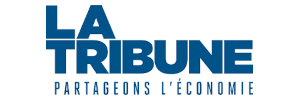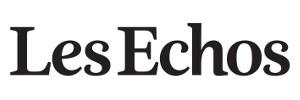
03.11.2023
Par Virginie Robert
Fondateur de la World Policy Conference qui tient sa 16e édition à Abu Dhabi ce week-end, en partenariat avec « Les Echos », Thierry de Montbrial revient sur les crises qui secouent le système international, du conflit qui oppose Israël au Hamas à la guerre en Ukraine.
La violence de l’attaque du Hamas le 7 octobre a stupéfié le monde et enclenché une nouvelle guerre au Moyen-Orient. Est-ce le résultat d’une question israélo-palestinienne trop longtemps laissée de côté ?
Je me garderai d’établir une relation simple de cause à effet pour expliquer l’attaque barbare lancée par le Hamas le 7 octobre. Je dirais plutôt que le Hamas s’est appuyé cyniquement sur l’enterrement apparent du conflit israélo-palestinien pour déclencher une guerre dont le véritable enjeu est l’avenir du Moyen-Orient dans son ensemble.
Quant au conflit lui-même, c’est un fait que personne n’a travaillé sérieusement à la solution des deux Etats depuis une vingtaine d’années. La France pas plus que les autres Occidentaux. Les Arabes non plus. J’ajoute que sur cette question comme sur tant d’autres, les Européens ont du mal à raisonner en termes stratégiques. Nous ne nous référons qu’à des principes (démocraties contre démocratures, par exemple) et à l’idée que nous nous faisons du bien et du mal.
Il est possible que le rapprochement de l’Arabie saoudite et d’Israël ait contribué au choix du moment de l’attaque. Mais l’agression a été préparée pendant longtemps. Le plus stupéfiant, c’est l’effet de surprise. L’évolution de la politique intérieure d’Israël l’explique en partie. Ce drame nous rappelle aussi que la technologie ne peut pas tout. On le voit également en Ukraine, où l’on en est revenu à une guerre de tranchées .
Est-ce qu’Israël a mal alloué ses ressources militaires ?
Les Israéliens ont été distraits par leurs affaires intérieures, et notamment la réforme judiciaire. Ils ont aussi été sanctionnés par l’hubris, l’idée d’un Israël devenu invincible en particulier grâce à la technologie. L’allocation des forces, notamment en Cisjordanie, a également joué. Le Hamas a spéculé sur tout cela.
L’Etat hébreu veut détruire le Hamas. Faut-il craindre un embrasement régional ?
Dans la durée, la haine se nourrit du passé, du sentiment d’injustice, de questions non réglées et, naturellement, des propagandes. Je ne sais pas si l’éradication militaire du Hamas est possible, j’en doute. Le risque d’un embrasement régional est réel , mais ce n’est dans l’intérêt de personne. Cela dit, même contenue, la guerre fera des dégâts considérables.
Le rôle de l’Iran sera crucial. Depuis la révolution de 1979-1980, ce pays s’est habilement affiché devant les opinions publiques arabes comme le seul vrai défenseur de la cause palestinienne. Les Persans s’emploient à diviser les Arabes. Comme toujours. C’est ainsi qu’on doit comprendre le slogan de Téhéran, qui rejoint celui du Hamas, prônant l’éradication d’Israël. Mais je doute que l’Iran veuille prendre explicitement le risque d’une guerre avec les Etats-Unis. Dans l’immédiat, le principal danger est l’embrasement incontrôlable des opinions publiques. Y compris en Europe, particulièrement en France .
Comment peut évoluer, vu les circonstances, le rapprochement de l’ Arabie saoudite avec l’Iran ?
L’objectif de l’Arabie saoudite est de se moderniser et, à terme, d’occuper une place majeure dans l’équilibre du Moyen-Orient. L’Iran aussi, bien sûr. Il y a de la marge pour une certaine entente entre les deux.
Est-ce que la France et l’Union européenne peuvent jouer un rôle ?
L’Union européenne n’a pas de politique étrangère au sens fort , car elle n’est pas un Etat et ne dispose pas en tant que telle des leviers de la force, que ce soit sur le plan économique ou militaire. Elle n’a pas de vision claire de son identité et donc de ses intérêts à défendre. Il n’y a pas véritablement d’exécutif européen.
Une politique étrangère se compose d’actions cohérentes poursuivies dans la durée, avec de vrais moyens, et repose sur une vision véritablement géopolitique, jamais uniquement sur des principes abstraits comme la démocratie et les droits de l’Homme. L’Union européenne peut cependant contribuer aux actions humanitaires, distribuer de l’argent (à quelles conditions ?), sanctionner, parler aux belligérants, plaider pour un règlement politique.
Aux antipodes des Européens, malgré les courants idéologiques qui les traversent, les Américains possèdent un sens aigu de leur identité et de leurs intérêts. Ils restent des champions dans le maniement du bâton et de la carotte. Démocrates ou républicains, ils pratiquent toujours un discours moralisateur, mais sans jamais perdre le sens du concret. Quand il le faut, ils n’hésitent pas à se retourner brusquement.
Vous êtes l’un de ceux qui pensent qu’on ne résoudra le conflit ukrainien que par la diplomatie. C’est une position que beaucoup réfutent car ils ne veulent pas récompenser l’agression russe en Ukraine…
Nombreux sont ceux, dans les capitales occidentales, qui réfléchissent à l’issue de cette guerre sans en parler ouvertement. L’histoire du monde est remplie de situations inacceptables, mais que l’on finit par accepter, souvent à contrecœur. La guerre change tout, au cours du temps.
[…]
Retrouvez l’intégralité de l’interview sur le site des Echos.

















